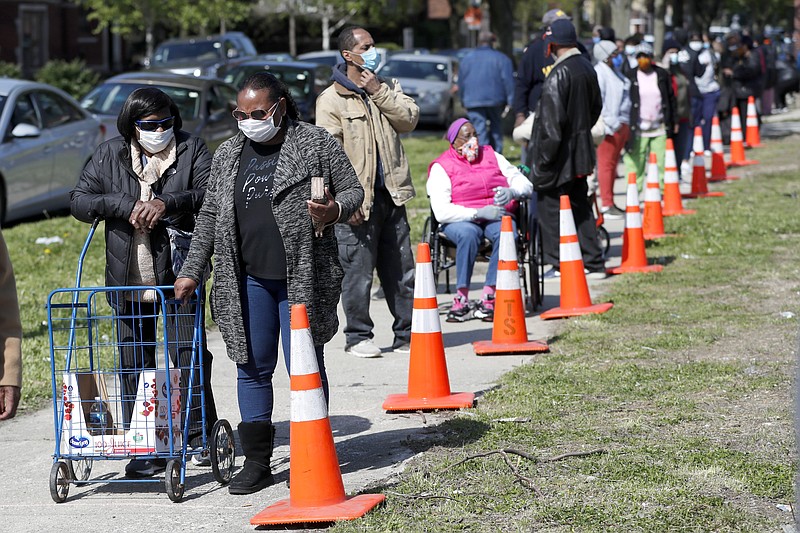Candidate Franklin Roosevelt first used the term "the forgotten man" to describe those he hoped would benefit from his New Deal policies if he were elected president in 1932. President Richard Nixon, in seeking support for his efforts in the Vietnam War in 1969, called these citizens "The Silent Majority." President-elect Donald Trump, in his victory speech in 2016, again returned to the "forgotten men and women" as those who might expect to benefit from his presidency.
All three were talking about the vast middle class, those who get up and go to work every day, those who don't see themselves on the fringe of their parties, those who would be embarrassed for the government to have to support them, and those who obey the law and try to stay within the mandates of what their leaders tell them.
Today, as cities burn, as cases of COVID-19 rise with social distancing all but forgotten, as stay-at-home directives are tossed aside and the economy flounders, we wonder about the pent-up frustration and confusion the many of the forgotten class must feel.
They sympathize with the plight of the George Floyds at the hands of a rage-filled policeman but can't imagine officers targeted by shooters and run over by angry protesters as happened Monday. They believe in peaceful protests but don't understand looting and burning a small business that someone just like them founded and nurtured with their life savings.
They believe in sending their children to college to get the best education possible but are flummoxed when they hear one professor instructing rioters on Twitter how to pull down historic statues and others repeatedly call for anarchy. They want to have confidence in the person they elect president, but they don't know what to do when one candidate seems to sanction his staffers bailing out looters and the current occupant tweets outrage from the safety of an underground bunker or holds up a Bible in front of a burned church to show he's not cowering from rioters.
While many of the young go maskless and gather like the virus never existed, those in the forgotten middle dutifully don face coverings and perhaps latex gloves when they make their rare trips to the grocery store. Then they watch as the same leaders who were insistent they stay at home all but welcome those who riot and loot in the name of social justice.
They distance themselves from family members because their leaders say that will keep them safe but see parents and loved ones die in extended care facilities and then watch as Hollywood, political Washington, D.C., and the national media move about as freely as they wish.
They work from home because that's what they're told they must do to keep their job, themselves and their coworkers safe, losing daily face-to-face interactions, conversations and support. They're left able only to stare at inane chattering on social media, send impersonal email where only CAPITAL LETTERS DISPLAY EMOTION and use insipid cellphone conversations for communication.
And they're cut off not from the center of their faith but from their spiritual support group, where they can be themselves, find comfort in like-minded believers, and worship with public prayer, liturgy and song.
It's no wonder, then, the forgotten middle has observed what has happened in America over the last week and felt confused, angry, tired, sleepless, sick to their stomachs, fed up, empty and uncared about.
They look for leadership in the political parties and find hate and contempt on one side and bluster and incompetence on the other. They look for medical advice about the virus and find exaggerated models, curative economic plans made with scythes and not scalpels, and politicians willing to cast the best advice aside when their world view gets in the way.
And if those weren't enough, they hear that gun sales are going through the roof, opioid addiction, suicides and STDs are rising. Plus, there's no Major League Baseball on the horizon because neither the rich owners nor the rich players want to give in enough to come to an agreement.
The rich and the poor will always be with us, the left and right fringes of political parties will always attempt to outshout each other, and economic hard times always will come and go. But this country was built on the oft-forgotten middle, and it would behoove those who want to save this country to pay attention to what this group is thinking and feeling about what is going on today.
